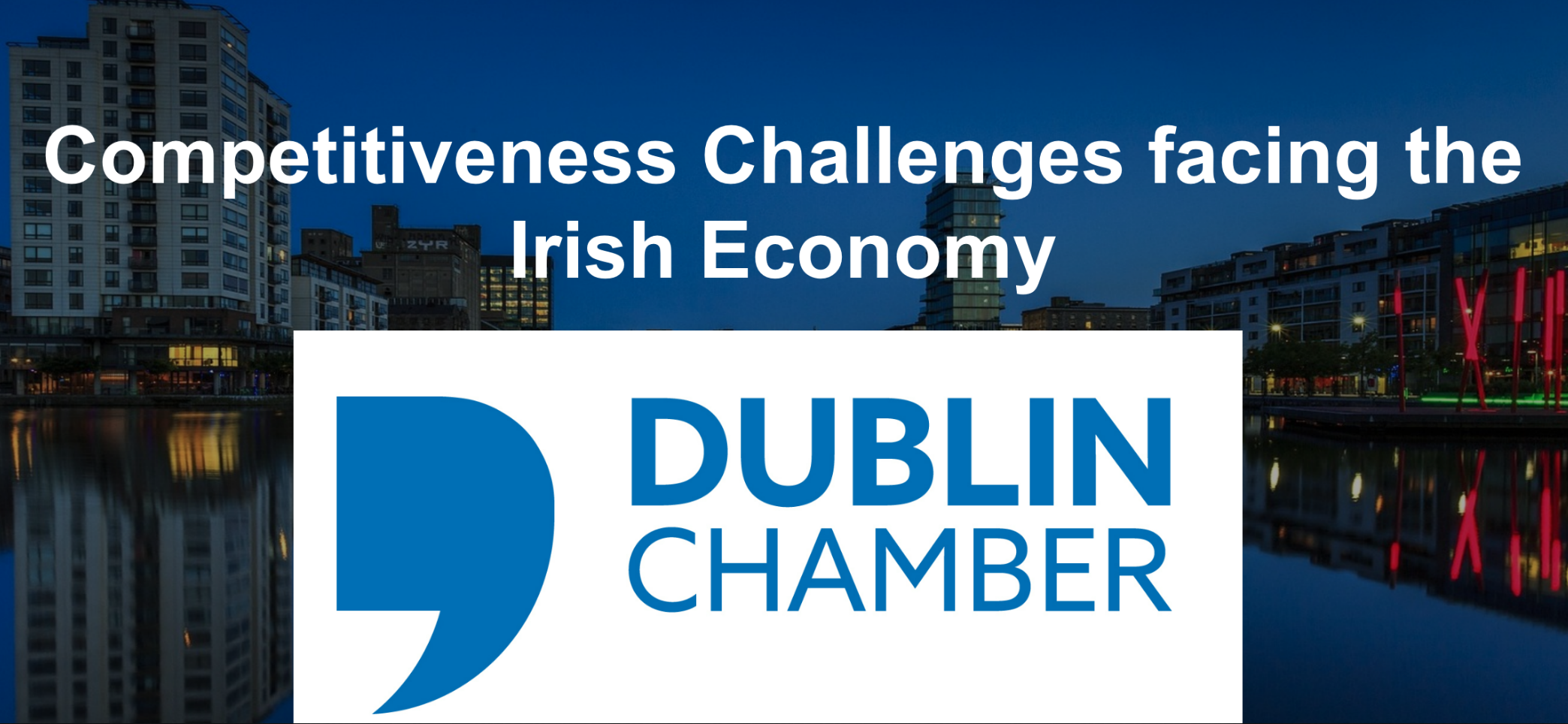
Our #PhoenixFamily was thrilled to welcome 2020 with the first of many events this year, beginning with insightful presentations on the Competitiveness Challenges Facing The Irish Economy, hosted by Dublin Chamber of Commerce.
Dr. Frances Ruane, Chair of the National Competitiveness Council, discussed her recommendations from the recently published Competitiveness Challenge Report 2019. The NCC advises the Taoiseach on competitiveness issues and recommends actions to enhance Ireland’s competitive position. Dr. Ruane examined Ireland’s economic competitiveness through the twin pillars of cost and productivity. In relation to cost drivers, she discussed the comparatively high cost of credit in Ireland and expressed concern about the slow reform process and a lack of transparency in legal services, and high award levels and limited competition in the insurance sector.
Key recommendations on cost were as follows:
Cost of Credit
Facilitating information sharing with financial experts
Raising awareness about government support programmes.
Ensure SMEs are aware of financial options available
Broaden SBCIs on-lending partners
Legal Costs
Ensure the Office of the Legal Cost Adjudicator is resourced to operate effectively
Monitor/report on the impact of the Mediation Act 2017 on conflict resolution time and cost.
Insurance
Explore legislative route to compel insurance companies to provide claims data by settlement channels.
In relation to economic productivity, she voiced concern about infrastructure, skills and financing gaps in the digital economy; the impact of governance and construction sector productivity on public infrastructure; and the impact of skills mismatches, falling university rankings, and low levels of lifelong learning upon human capital in Ireland.
Key recommendations on productivity were as follows:
Digital Economy
Finalise and publish the new National Digital Strategy.
Establish the Data Governance Board.
Provide co-financing for SME investment in digitalisation.
Infrastructure
Increase public infrastructure investment.
Expedite the publication of the Regional Spatial and Economic Strategies.
Finalise the Construction Sector Productivity Assessment report.
Skills
Develop a sustainable long-term funding model for higher education.
Insightful presentation from Dr. Frances Ruane, National Competitiveness Council, on productivity in the #Irisheconomy@DubCham. #Humancapital investments are critical. Ireland ranked 24th globally for Doing Business In Ireland by the World Bank - more to do #ConnectingDublinpic.twitter.com/yffkAgWpl5
— Phoenix (@phoenixrecruit) January 15, 2020
Dr. Ruane was joined by Ciara Morley of EY-DKM Economic Advisory Services who presented findings of the Dublin Economic Monitor, which offers a more regional focus, with insights below. The Monitor tracks 15 key economic indicators and captures data from the height of the boom to the economic crash and the subsequent recovery. These indicators show that the capital’s economy is gathering pace with positive trends across a range of indicators, most notably in the labour market and tourism sector.
Ireland is close to full employment, with Irish workers ranked the most productive globally, so the ability to attract and retain #talent is the #1 concern for Irish companies and multinationals, according to @EY_Ireland's Ciara Morley @DubCham@ESRIDublin#ConnectingDublinpic.twitter.com/4bVNenmeWr
— Phoenix (@phoenixrecruit) January 15, 2020
The cost of #childcare and #housing, particularly in #Dublin, has a huge knock on effect on competitiveness in #Ireland. Companies need to think through the lens of the people, or face social disharmony such as #Brexit#Trump@EY_Ireland@ESRIDublin@DubCham#ConnectingDublinpic.twitter.com/UnjeLXw3rd
— RachelHealy (@RachelHealyMA) January 15, 2020